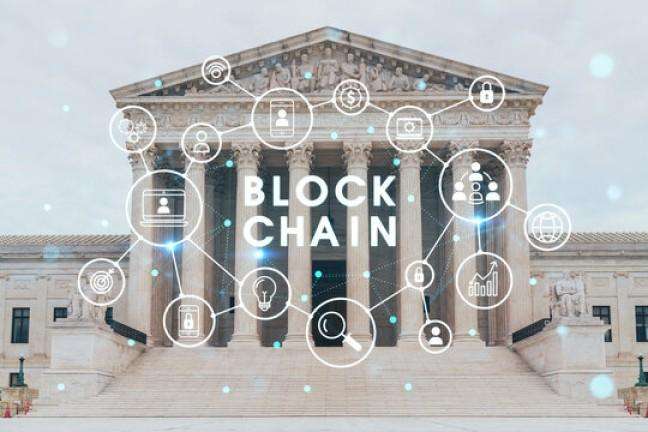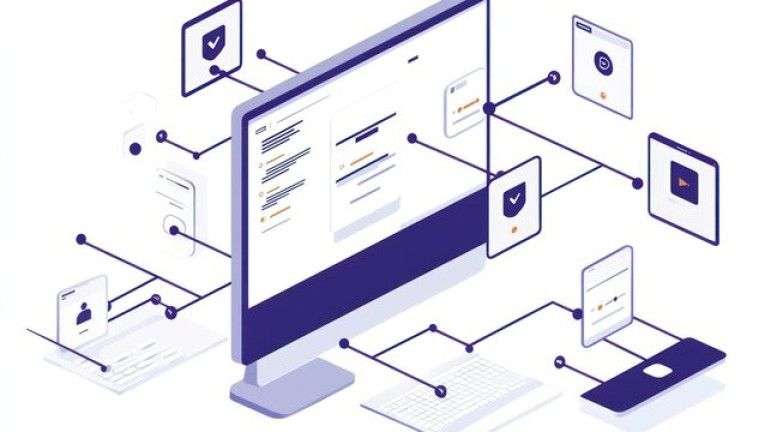Introduction
Blockchain has changed how industries handle data, contracts, and transactions. Infrastructure companies now explore its potential to enhance efficiency and transparency. Acciona, a Spanish multinational known for sustainable infrastructure and renewable energy, integrates blockchain into its operations. In this article, I will explore how Acciona applies blockchain technology, compare it to other solutions, and examine its impact on the industry.
Table of Contents
Understanding Acciona’s Blockchain Approach
Acciona focuses on digital transformation, using blockchain to ensure traceability, efficiency, and security. The company primarily applies blockchain in renewable energy and construction. It enables tracking energy sources, verifying project credentials, and reducing paperwork. By securing records in a tamper-proof ledger, Acciona improves trust among stakeholders.
Why Blockchain Matters in Infrastructure
Infrastructure projects involve multiple entities—governments, contractors, suppliers, and investors. Traditional processes rely on paper-based documentation and intermediaries, which slow transactions and create inefficiencies. Blockchain reduces these inefficiencies by offering:
- Transparency: All parties access real-time information.
- Security: Data remains immutable, reducing fraud.
- Efficiency: Automated processes lower costs and delays.
- Sustainability: Less paper use and energy tracking ensure eco-friendly practices.
Comparing Traditional vs Blockchain-Based Processes
| Feature | Traditional System | Blockchain System |
|---|---|---|
| Documentation | Paper-based, slow | Digital, instant verification |
| Trust | Requires third parties | Decentralized validation |
| Security | Risk of tampering | Tamper-proof ledger |
| Efficiency | Delays due to intermediaries | Smart contracts automate processes |
| Cost | High due to manual work | Reduced through automation |
Acciona’s Key Blockchain Applications
Acciona uses blockchain across multiple areas. I will examine two core applications: renewable energy certification and construction supply chain management.
Renewable Energy Certification
One challenge in the energy sector is verifying energy sources. Many companies claim to use renewable energy, but proving authenticity is difficult. Acciona addresses this with blockchain.
How It Works
- Renewable energy production data enters the blockchain.
- The system assigns digital certificates to each energy unit produced.
- Consumers and regulators can verify energy origin in real time.
Example Calculation
Suppose Acciona’s wind farm generates 1,000 megawatt-hours (MWh). Using blockchain, it issues 1,000 digital certificates. A factory buys 500 MWh and receives 500 certificates. This ensures that the energy purchased comes from a verifiable renewable source.
Construction Supply Chain Management
Infrastructure projects rely on complex supply chains. Materials must meet regulations, and project milestones must be tracked. Blockchain improves this by creating a transparent, auditable record of every transaction.
Blockchain in Action
- Material Tracking: Each shipment logs origin, transport details, and certification.
- Smart Contracts: Payments release automatically upon contract fulfillment.
- Project Milestone Verification: Stakeholders validate progress in real time.
Cost-Benefit Analysis
| Factor | Without Blockchain | With Blockchain |
|---|---|---|
| Fraud Risk | High | Low |
| Compliance Costs | Expensive audits | Automated verification |
| Dispute Resolution | Lengthy legal processes | Instant verification |
| Overall Efficiency | Moderate | High |
Challenges and Limitations
Blockchain offers advantages but also has challenges:
- Scalability: Large-scale projects require extensive data storage.
- Integration Costs: Initial setup involves investment in technology and training.
- Regulatory Uncertainty: Governments have varying blockchain regulations.
Future Prospects
As technology advances, blockchain in infrastructure will expand. Acciona continues research and development to improve its applications. Future trends may include AI integration, improved interoperability, and wider regulatory acceptance.
Conclusion
Acciona’s blockchain use demonstrates how digital innovation transforms infrastructure and energy management. By enhancing transparency, security, and efficiency, blockchain sets a new standard for the industry. Challenges remain, but its potential outweighs them. Infrastructure companies looking to improve trust and streamline operations should consider blockchain as a valuable tool.





